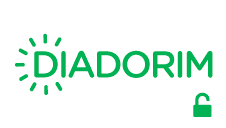Inteligência Artificial Generativa na Educação
Potenciais, Desafios e Implicações Críticas para os Letramentos no Sul Global
DOI:
https://doi.org/10.47677/gluks.v25i02.545Keywords:
Artificial Intelligence, Education, Generative AI, Digital Literacies, Global South.Abstract
This article critically analyzes the transformations brought about by Generative Artificial Intelligence (AI) in education, with particular attention to its impacts on literacy practices and teacher education in the Global South. It first presents a historical and ontological contextualization of AI, highlighting its emergence as a linguistic technology and its sociocultural implications, especially in Brazil. Next, the article discusses the cyber-social perspective as an alternative to the hegemonic discourse of technological “hype,” emphasizing the possibilities of complementarity between humans and machines. The analysis also focuses on the challenges faced by educators in adopting Generative AI, including ethical, pedagogical, and infrastructural issues. Finally, the article offers a critical reflection on the potential and limitations of Generative AI as a technology for supporting learning, particularly regarding the reconfiguration of writing practices and the personalization of teaching. The article concludes that, although adaptation to new technologies is inevitable, education must pursue a critical, creative, and situated appropriation of these tools in order to promote emancipatory and socially just literacies within the context of the Global South.
Downloads
References
BEBERMAN, Max. An emerging program of school mathematics: The Inglis Lecture. Cambridge, MA: Harvard University Press, 1958.
BENDER, Emily M.; HANNA, Alex. The AI Con: How to Fight Big Tech's Hype and Create the Future We Want. Harper, 2025. 286 p.
BLOOM, Benjamin S. The 2 sigma problem: the search for methods of group instruction as effective as one-to-one tutoring. Educational Researcher, v. 13, n. 6, p. 4–16, 1984.
HOLANDA, Sérgio Buarque de. Raízes do Brasil. [Reimpressão]. São Paulo: Companhia das Letras, 2015. 256 p. Publicado originalmente em 1936.
CHUN, Wendy Hui Kyong. Updating to Remain the Same: Habitual New Media. Cambridge: The MIT Press, 2017.
COPE, Bill; KALANTZIS, Mary. Towards education justice: multiliteracies revisited. In: ZAPATA, Gabriela C.; KALANTZIS, Mary; COPE, Bill (ed.). Multiliteracies in international educational contexts: towards education justice. London: Routledge, 2023. p. 1–33.
COPE, Bill; KALANTZIS, Mary. On Cyber-Social Learning: A Critique of Artificial Intelligence in Education. In: KOURKOULOU, Theodora et al. (org.). Trust and Inclusion in AI-Mediated Education: Where Human Learning Meets Learning Machines. Cham CH: Springer, 2024a. p. 3-34. DOI: https://doi.org/10.1007/978-3-031-64487-0_1.
COPE, Bill; KALANTZIS, Mary. Platformed Learning: Reshaping Education in the Era of Learning Management Systems. In: THOMAS, Duncan A.; LATERZA, Vito (ed.). Critical EdTech Studies and Digital Platforms in Higher Education: Varieties of Platformisation. London: Palgrave Macmillan, 2024b.
COPE, Bill; KALANTZIS, Mary; TZIRIDES, Anastasia O. Meaning without borders: from translanguaging to transposition in the era of digitally-mediated meaning. In: GROHMANN, Kleanthes K. (ed.). Multifaceted multilingualism. Amsterdam, NL: John Benjamins, 2024. p. 329–370. DOI: https://doi.org/10.1075/sibil.66.13cop.
CORTIZ, Diogo. 'Você não será substituído pela IA': por que você deveria desconfiar disso. Tilt, UOL, 18 maio 2025. Coluna de Diogo Cortiz. Disponível em: https://www.uol.com.br/tilt/colunas/diogo-cortiz/2025/05/18/voce-nao-sera-substituido-pela-ia-por-que-voce-deveria-desconfiar-disso.htm. Acesso em: 26 maio 2025.
COSTA, Kleyton da; ALTERMAN, Enio. IA, sociedade e meio ambiente: uma abordagem a partir de sistemas complexos. Understanding AI, 2025. Disponível em: https://understandingai.iea.usp.br/nota-critica/ia-sociedade-e-meio-ambiente-uma-abordagem-a-partir-de-sistemas-complexos/. Acesso em: 21 maio 2025.
FRASER, Nancy. Capitalismo Canibal: como nosso sistema está devorando a nossa democracia, o cuidado e o planeta e o que podemos fazer a respeito disso. São Paulo: Autonomia Literária, 2024.
KALANTZIS, Mary; COPE, Bill. Literacy in the Time of Artificial Intelligence. Reading Research Quarterly, v. 60, n. 1/e591, 2025. DOI: 10.1002/rrq.591
KAUFMAN, Dora. Linguagem, identidade e IA: os riscos da dominância do inglês nos modelos generativos. Época Negócios, 20 jun. 2025. Disponível em: https://epocanegocios.globo.com/colunas/iagora/coluna/2025/06/linguagem-identidade-e-ia-os-riscos-da-dominancia-do-ingles-nos-modelos-generativos.ghtml. Acesso em: 21 jun. 2025.
KWET, M. Digital colonialism: US empire and the new imperialism in the Global South. Race & Class, London, v. 60, n. 4, p. 3-26, 2019. DOI: 10.1177/0306396818823172.
LUKE, Allan. AI and the Deskilling of Teachers’ Work. Australian Journal of English Education, 2025. No prelo.
MIAO, Fengchun; CUKUROVA, Mutlu. AI Competency Framework for Teachers. Paris: UNESCO, 2024. DOI: 10.54675/ZJTE2084.
NEW LONDON GROUP. A Pedagogy of Multiliteracies: Designing Social Futures. Harvard Educational Review, Cambridge, MA, v. 66, n. 1, p. 60-92, 1996. DOI: 10.17763/haer.66.1.17370n67v22j160u.
NOTHIAS, Toussaint. An intellectual history of digital colonialism. Journal of Communication, [s. l.], v., n., p., 2025. DOI: 10.1093/joc/jqaf003. Disponível em: https://doi.org/10.1093/joc/jqaf003. Acesso em: 21 jun. 2025.
SPERLING, Katarina et al. In: Search of Artificial Intelligence (AI) Literacy in Teacher Education: A Scoping Review. Computers and Education Open, v. 6, n. 100169, p. 1-13, 2024. DOI: 10.1016/j.caeo.2024.100169.
TZIRIDES, Anastasia O. et al. Generative AI in Education: Reflections from Application with Student Work. In: KOURKOULOU, Theodora et al. (ed.). Trust and Inclusion in AI-Mediated Education: Where Human Learning Meets Learning Machines. Cham: Springer, 2024a. p. 287-302. DOI: 10.1007/978-3-031-64487-0_13.
UNESCO. Global Report on Teachers: Addressing Teacher Shortages and Transforming the Profession. Paris: International Task Force on Teachers for Education, 2024.
VANDEHEI, Jim; ALLEN, Mike. Behind the Curtain: A white-collar bloodbath. Axios, 28 maio 2025. Disponível em: https://www.axios.com/2025/05/28/ai-jobs-white-collar-unemployment-anthropic?utm_source=newsletter&utm_medium=email&utm_campaign=newsletter_axiosam&stream=top. Acesso em: 31 maio 2025.
WANG, J.; FAN, W. The effect of ChatGPT on students’ learning performance, learning perception, and higher-order thinking: insights from a meta-analysis. Humanities & Social Sciences Communications, [S. l.], v. 12, n. 621, 2025. Disponível em: https://doi.org/10.1057/s41599-025-04787-y. Acesso em: 21 jun. 2025.
Downloads
Published
How to Cite
Issue
Section
License
Copyright (c) 2025 Gláuks - Revista de Letras e Artes

This work is licensed under a Creative Commons Attribution 4.0 International License.














